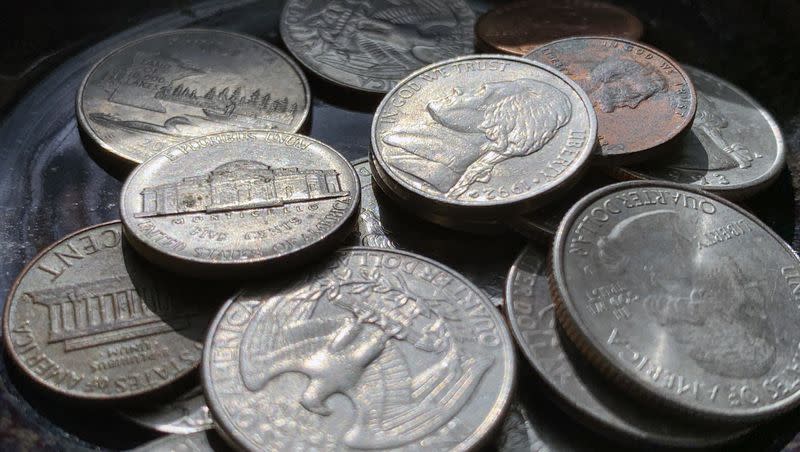5 old-fashioned tips for saving money that work

There are many different ways to begin to save money, but as the old saying goes, “if it ain’t broke, don’t fix it.” Some of the most tried and tested tricks for saving money still appear to work for people trying to save their money amid the current economy.
Here are five of the “old-fashioned” tried, tested and true money-saving tips to help you build your savings now.
Related
1. Always keep track of your expenses
Keeping track of where your money is going “could help you control spending and make more purposeful choices about your money,” Capitol One reported.
According to The Balance, tracking your spending:
Helps you stick to your preapproved budget.
Reveals where you’re spending too much.
Helps you actually meet your financial goals.
As the Fed raising interest rates has been a recent topic of discussion among Americans, it is important now more than ever to keep track of how much you’re spending and how much you’re saving.
“More than 2 in 3 people say their wallets have been affected by the Fed raising interest rates, according to a new WalletHub survey. Two years ago, most people probably didn’t even know what a Fed rate hike was,” WalletHub analyst Delaney Simchuk told the Deseret News.
Related
2. The envelope budgeting method
The envelope budgeting system is “a budgeting system that focuses on discretionary spending — basically the money that’s left over after necessities and fixed expenses like rent are paid,” per Capital One.
A person using this system separates their expenses into categories such as rent, car, insurance, utilities, food, entertainment, etc. After the individual determines what they need to pay for in a month, they make envelopes, each labeled with one of the categories they determined they would need to pay for that month.
After the envelopes have been made, the person splits their money into how much they need to pay or are willing to pay for each of those categories, “and then only let yourself spend until the cash in each envelope is gone,” according to Capitol One.
Nerdwallet reported that this technique may prove to be particularly useful, as spending on a credit or debit card can sometimes lead to overdraft fees and debt.
“In this day and age, many items are put on credit cards,” said Molly Ford-Coates, accredited financial counselor and CEO of Ford Financial Management, according to Bankrate. “This makes it very easy to overspend. However, when you have a cash budget for certain items, you know exactly how much you are spending.”
Related
3. Instead of replacing items, do your best to fix them first
Fixing your broken items on your own can help you save money as you’re prolonging the time in both spending your money and scouting out deals for replacing the item needing repair or replacement.
Big Issue reported that “Repair Week” in the United Kingdom is a campaign that gives people the tools to fix and repair broken items in order to help them save more money while also saving the environment.
“With the cost of living and climate crises, it makes sense that there is a growing appetite for learning to repair and upcycle rather than throw away,” Rebecca Child, campaign manager for Repair Week, told Big Issue.
MSN reported that some important “simple” repairs to learn include learning to fix your “car, air conditioner, furnace, washing machine, and other house equipment.”
Related
4. Take care of what you have
Getting the most out of what you purchased “by performing maintenance, keeping things clean, and storing them well” can help you save money, according to Heart’s Content Farmhouse.
Business Insider reported that individuals who have been watching DIY repair YouTube videos have saved hundreds of dollars and helped increase their confidence in their ability to make their own repairs.
Peter Rothbart, who was able to repair his own washing machine with YouTube, told Business Insider, “in the end, our washing machine was fully operational about 90 minutes after we sent the repairman away, and we were $250 better off.”
The Family Handyman shared helpful links to 100 home repair guides for individuals to use when they are looking to repair home items without paying the expensive fees for service.
Related
5. Be patient and really think through your purchases
“The best way to help consumers avoid overspending is to get them to both care about the future and recognize how their current behaviors affect the future,” authors Daniel M. Bartels and Oleg Urminsky from the University of Chicago Booth School of Business wrote, according to Science Daily.
CNBC advises that one way to avoid impulse buying is to wait at least 24 hours or 48 hours before making big purchases, detailing that, “by making yourself pause, you’ll have more time to think about whether the item is really worth the cost.”

